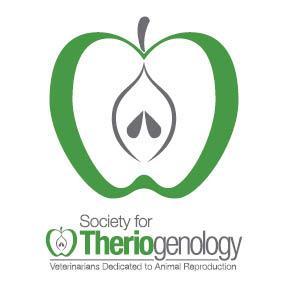Get access to all handy features included in the IVIS website
- Get unlimited access to books, proceedings and journals.
- Get access to a global catalogue of meetings, on-site and online courses, webinars and educational videos.
- Bookmark your favorite articles in My Library for future reading.
- Save future meetings and courses in My Calendar and My e-Learning.
- Ask authors questions and read what others have to say.
Pregnancy loss in ruminants
Andrés de la Concha-Bermejillo...
Get access to all handy features included in the IVIS website
- Get unlimited access to books, proceedings and journals.
- Get access to a global catalogue of meetings, on-site and online courses, webinars and educational videos.
- Bookmark your favorite articles in My Library for future reading.
- Save future meetings and courses in My Calendar and My e-Learning.
- Ask authors questions and read what others have to say.
Read
Pregnancy loss in ruminants is a major economic loss to producers and highlights the importance of control measures to prevent its cause. Although pregnancy loss may occur at any stage of pregnancy, early loss is usually unnoticed and samples are not submitted for diagnosis. Pregnancy loss is detected by observations for return to estrus, transrectal palpation or ultrasonography, and blood tests for specific antigens. Submissions to a laboratory often consist of 4- to 5-month-old, or older, aborted fetuses and/or maternal serum. Consequently, reports of pregnancy loss in ruminants are biased towards second and third trimester causes of pregnancy loss, because the chance of collecting a fetus or fetal membranes and submitting them to a laboratory improves as pregnancy advances. Causes of pregnancy loss in ruminants are noninfectious and infectious. Among the former are genetic defects, toxins, nutritional deficiencies, iatrogenic, drugs, and environmental causes. Infectious causes include bacteria, fungi, viruses, and protozoa. A major concern of many infectious causes of pregnancy loss in ruminants is their zoonotic potential. A specific cause is identified in only 30 - 70% of late-term abortion samples submitted to a diagnostic laboratory. Adequate specimen collection and proper handling are essential prerequisites for accurate test results. Ideally, multiple concurrent tests are necessary for accurate diagnosis. Main causes of pregnancy loss in ruminants are discussed. ...
Ruminants, abortion, diseases, pregnancy loss
Get access to all handy features included in the IVIS website
- Get unlimited access to books, proceedings and journals.
- Get access to a global catalogue of meetings, on-site and online courses, webinars and educational videos.
- Bookmark your favorite articles in My Library for future reading.
- Save future meetings and courses in My Calendar and My e-Learning.
- Ask authors questions and read what others have to say.



Comments (0)
Ask the author
0 comments